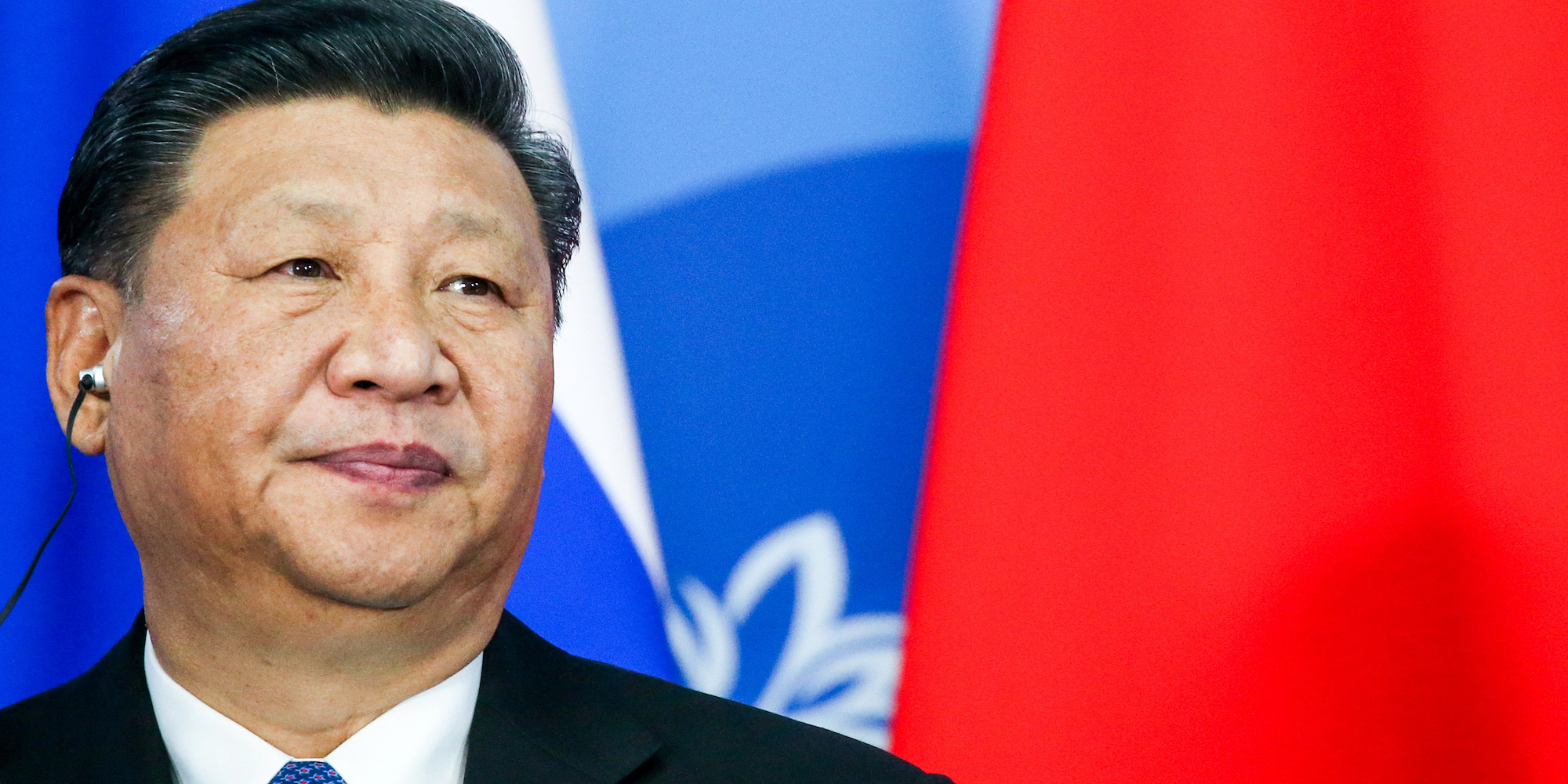- A court in Dalian, China, on Monday sentenced a 36-year-old Canadian man to death on charges of international drug trafficking.
- Robert Lloyd Schellenberg was detained in China in 2014 and sentenced in November to 15 years in prison. Then a Chinese court said his sentence was too lenient and retried him.
- The death sentence comes a month into China and Canada’s diplomatic feud over Ottawa’s arrest and detention of Meng Wanzhou, the chief financial officer of Huawei.
- Canadian Prime Minister Justin Trudeau accused China of “arbitrarily” applying the death penalty to Schellenberg, who says he was framed.
A Chinese court sentenced a Canadian man to death on charges of drug smuggling in the latest escalation of Beijing and Ottawa’s diplomatic feud over the detention of the Chinese tech giant Huawei’s chief financial officer.
The Dalian Intermediate People’s Court in Liaoning, a province in northeastern China, handed down Robert Lloyd Schellenberg’s judgment at his retrial on Monday, it said in a statement on its website.
Schellenberg, 36, was detained in China in 2014. He was sentenced in November to 15 years in prison on charges of smuggling drugs. Schellenberg says he is innocent.
In late December, a Dalian court bolstered his charge to international drug trafficking, deemed his punishment to be too light, and called for a retrial.

Chinese prosecutors accused Schellenberg of trying to smuggle 222 kilograms (nearly 500 pounds) of methamphetamines in a car tire liner from China to Australia and listed a series of phone conversations implicating him.
Schellenberg says he was framed. He told the court on Monday, according to The Globe and Mail's China correspondent Nathan VanderKlippe: "I am not a drug smuggler. I am not a drug user. I am a normal person."
The maximum penalty for international drug trafficking in China is death.
Schellenberg's murky past
According to The Globe and Mail, Schellenberg's criminal record in Canada dates back to 2003, when he was sentenced to six months in prison for posessing drugs for the purposes of trafficking.
In British Columbia in 2012, Schellenberg also pleaded guilty to the possession of cocaine and heroin for the purpose of trafficking, and simple possession of cannabis resing and methamphetamine.
Schellenberg ultimately served 16 months and 12 days in a Canadian prison.

High tensions between China and Canada
Schellenberg's December hearing came three weeks into a diplomatic feud between China and Canada over the arrest and detention of Meng Wanzhou, Huawei's CFO and the daughter of the company's founder.
Canada made the arrest at the US's request. Meng is suspected of violating US sanctions on Iran and of misleading banks and investors about a second company that was selling to Iran.
Ottawa briefly detained Meng before allowing her to await extradition to the US in a multimillion-dollar home she owns in Canada.
Since Meng's arrest, China has detained two more Canadians - Michael Kovrig, a former diplomat, and Michael Spavor, an entrepreneur - on vague allegations that they threaten Chinese national security.

'Human hostages'
Experts have directly linked the Canadians' detentions to China's Huawei dispute.
Donald Clarke, an expert in Chinese law at George Washington University Law School, described the Canadian detainees - including Schellenberg - as "hostages."
He wrote on Lawfare last Friday that Schellenberg's case "appears to reinforce the message, previously suggested by the detentions of Canadians Michael Kovrig and Michael Spavor, that China views the holding of human hostages as an acceptable way to conduct diplomacy."

Lauri Nelson-Jones, Schellenberg's aunt, told The Globe and Mail ahead of Monday's retrial that "there's no way they are not using him as a pawn."
"That's someone's kid. That's someone's brother and nephew," she added. "And to just say, 'We're going to think about ending his life now over this' - it's not warranted. It's not deserved. It's heartbreaking."
Canadian Prime Minister Justin Trudeau on Monday accused China of choosing to "arbitrarily apply" the death penalty to Schellenberg.
He told reporters, according to CTV News: "It is of extreme concern to us as a government, as it should be to all our international friends and allies, that China has chosen to arbitrarily apply the death penalty."
China's ambassador to Canada, Lu Shaye, last week accused Ottawa of exhibiting "Western egotism and white supremacy" in the case of Meng's arrest.
- Read more on the Huawei CFO's arrest:
- China accuses Canada of 'white supremacy' over the detention of Huawei CFO
- The United States is using a presentation Huawei CFO Sabrina Meng Wanzhou gave to HSBC to argue she's guilty of breaching sanctions
- What you need to know about Meng Wanzhou, a Chinese tech founder's daughter whose arrest could set fire to US-China relations

